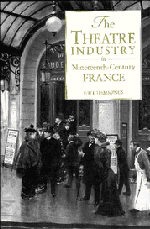15 - The profession is organized
Published online by Cambridge University Press: 07 December 2009
Summary
Dramatists represent, as we have argued in the introduction to this study, the primary producers without whom the theatre industry could never have functioned. Those who ran it as a business sought always, like industrialists in every other sphere, to increase their profits, which meant among other things that it was in their interests to secure an input of dramatic works at the lowest possible cost, in other words to purchase from playwrights as cheaply as possible the products of their pen. In the modern age there has of course always existed a fund of dramatic literature in printed form which is open to anyone to exploit: it consists of all the works of past centuries which have retained the power to draw an audience. But no company of players can hope to prosper indefinitely with a repertoire consisting solely of the classics; the demand for new plays, however ephemeral their interest, has always been insistent, and the emergence of new dramatists, offering attractive and stageworthy works, is vital for the prosperity of the industry. Consequently playwrights can always expect some remuneration for their efforts, though at no higher a rate than will secure their services for a theatre management concerned not just with maximizing profits but also with fighting off attempts by competitors to lure them to work elsewhere.
- Type
- Chapter
- Information
- The Theatre Industry in Nineteenth-Century France , pp. 229 - 240Publisher: Cambridge University PressPrint publication year: 1993



